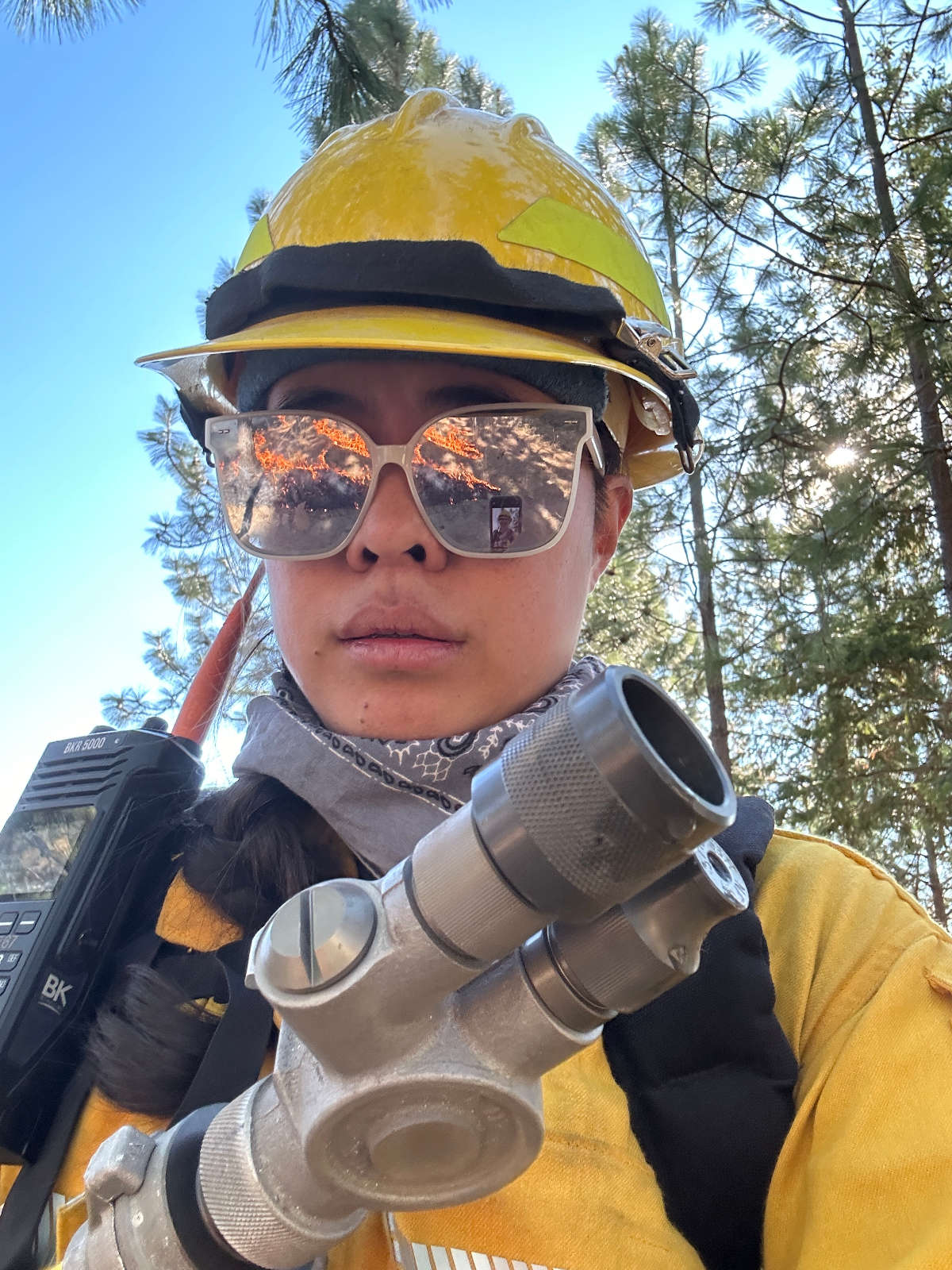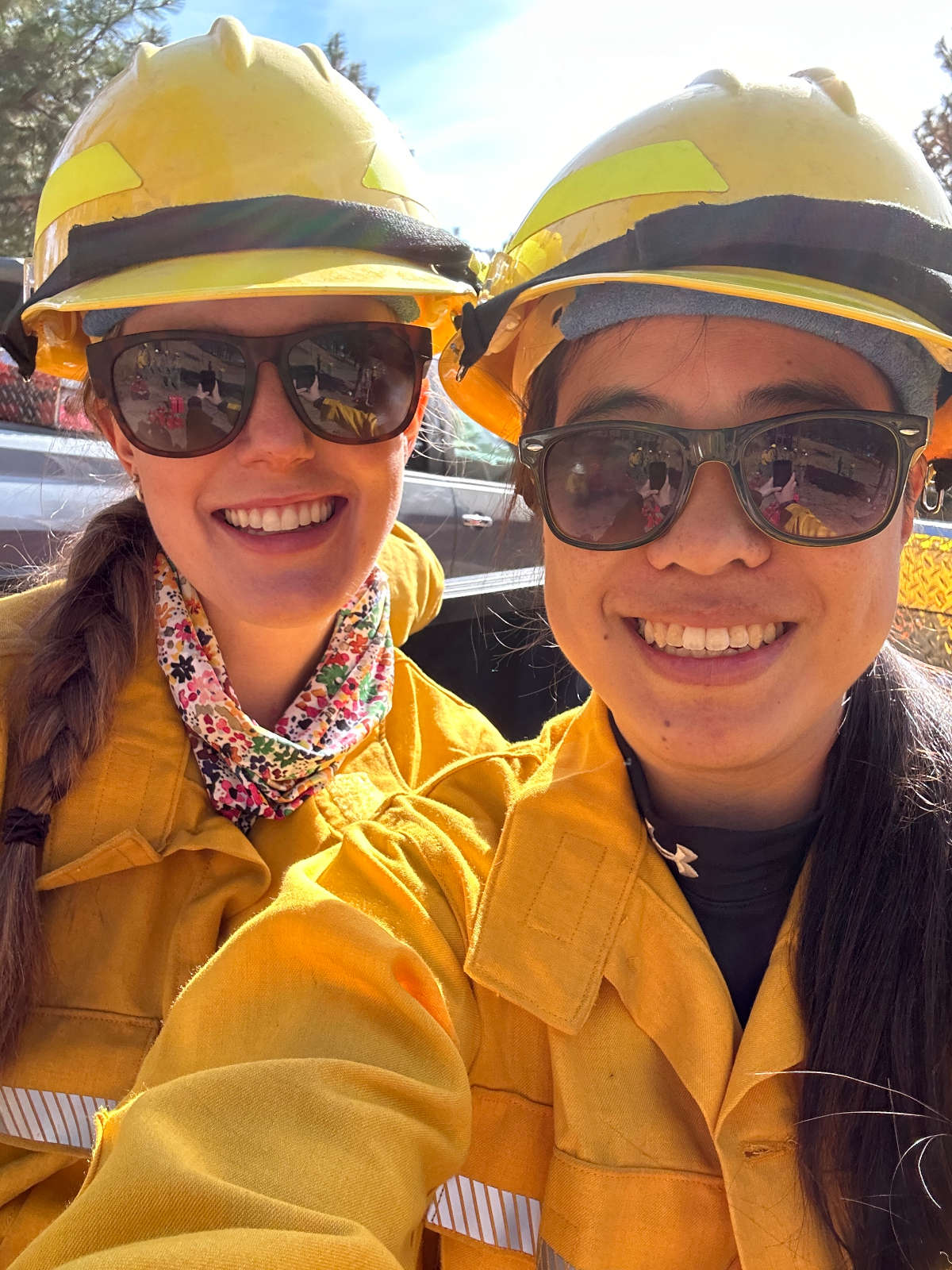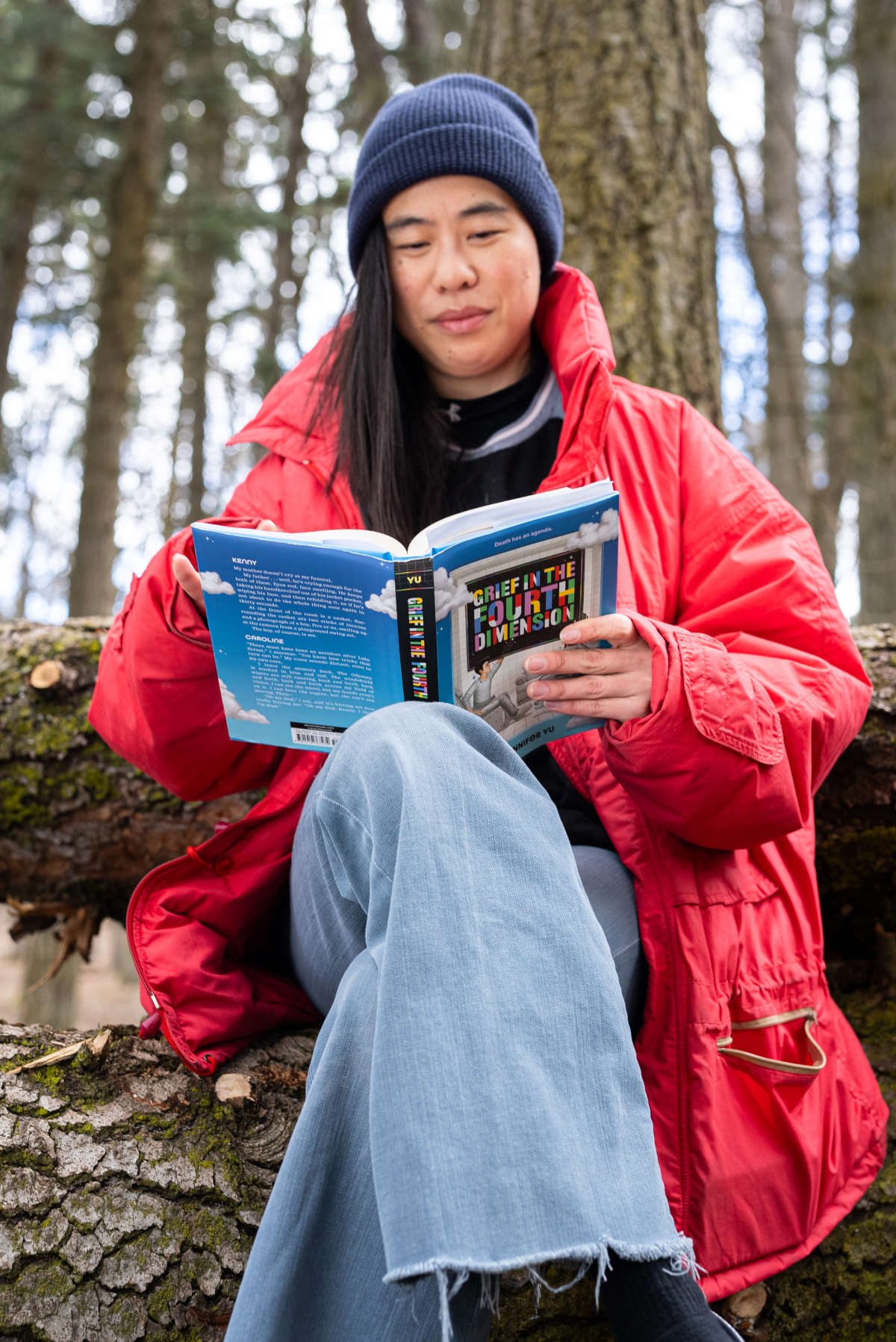CLASS MFA student and novelist fueled her creativity by participating in a prescribed burn
Jennifer Yu was one of the first participants in the Confluence Lab’s Stories of Fire project
The thought of participating in a prescribed burn was counterintuitive to MFA in creative writing student Jennifer Yu.
Although she knew it was a good idea to experience the sights, sounds and smells of wildfire for a future novel, she is, at heart, an environmentalist. Nevertheless, she spent two weeks last October slowly walking along tree lines outside of Chewelah, Washington, igniting tall grass with a drip torch.
“To write about situations involving fire, you need a holistic understanding so you can really describe it,” said Yu, who is in her second year of the three-year program. “Being able to show what it feels like to be that close to fire — to describe the physical experience of being in the middle of a fire — that’s what I want the reader to feel.”
Some fire is good, and I think it took being here and seeing everything in front of me to really understand that. Jennifer Yu, English MFA student
Yu participated in the burn, administered by prescribed fire training company TREX, as part of the Stories of Fire project of the Confluence Lab, a College of Letters, Arts and Social Sciences initiative that uses research in arts, humanities and the sciences to discuss environmental issues impacting rural communities.
Funding for the Stories of Fire project was made possible through a grant from the Mellon Foundation.
“Jennifer is one of 10 artists participating in Stories of Fire,” said Erin James, English professor at U of I. “All artists will participate in a prescribed burn, then share their message about how fire affects us through their art.”

Suffering for art
Yu grew up on the East Coast and completed her undergraduate studies at the University of Pennsylvania before traveling west. She spent time in California and Colorado before eventually enrolling in graduate school at U of I, drawn to the MFA program’s interdisciplinary style and focus on environmental humanities.
“I was interested in engaging more deeply with topics like the environment, climate, Western landscapes and history in my writing,” Yu said. “The opportunity to work with the Confluence Lab and learn from faculty like Erin James, Jennifer Ladino and Leah Hampton in the English department made U of I a natural place to do that exploration.”
As the published author of three novels, Yu has always embraced the idea of getting out from behind a desk, going outside and soaking in what nature has to offer — even if that means pushing herself beyond her comfort zone.
Training for the prescribed burn provided plenty of those moments.
“I’ve always liked to hike, camp and be outdoors, but this was something different,” she said. “We needed to hike three miles in 45 minutes with a 50-pound pack, wearing all of our gear. It was physically challenging but added to the experience.”

Yu and other crew members set fires with drip torches, a tool used in controlled burning to intentionally ignite fires by dripping flaming fuel onto the ground, then waited until on-site firefighters suppressed the fire. Standing and watching the flames provided Yu the opportunity to explore her feelings about fire.
“Fire evokes deep human emotions of fascination, but also of fear,” said Kylie Mohr, a correspondent for High Country News magazine and part of Yu’s team. “It’s important for writers to add emotion and firsthand experience to their stories.”
As someone passionate about the environment, Yu also learned that fire is a tool that is not solely negative.
“Some fire is good, and I think it took being here and seeing everything in front of me to really understand that,” she said.
Mohr agreed.
“The first time I used a drip torch, I freaked out,” Mohr said. “But by understanding fire’s behavior, I became less afraid of it. Truly understanding environmental topics requires getting your hands dirty.”

Art meets science
The Confluence Lab selected 10 regional artists to participate in Stories of Fire, but, according to James, more than 100 people from around the Pacific Northwest applied. Most were seasoned artists. Few were students.
The applicants went through interviews and jury sessions. Even though Yu was likely one of the youngest and least experienced artists, she impressed the judges.
“She blew our socks off,” James said. “She’s an incredible, deeply curious writer. Her writing is aimed at the young adult market, which we thought was perfect for this topic.”
Once all 10 participants have participated in a burn, James anticipates displaying all their resulting works in an online gallery space.
Yu is interested in writing a novel that incorporates wildfire into the story in the near future. Her experience and interest in science writing made taking part in a prescribed burn an easy decision. Yu spent last semester focusing on storytelling within that genre as part of her MFA studies.
“Being interested in the environment, in emotional humanities and in science narratives, I can see writing a climate-based fictional story,” she said. “Learning about fire and about how it can actually help the environment was a very rewarding experience.”
Erin James
Professor of English; Co-Director, The Confluence Lab; Affiliate Faculty, Environmental Science
Article by David Jackson, University Communications and Marketing.
Photos by Garrett Britton, University of Idaho Visual Productions and courtesy photos from Jennifer Yu.
Published in April 2025.










